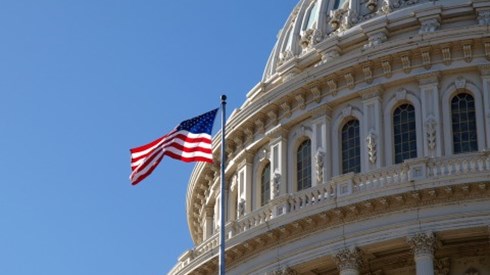US House Passes International Insurance Standards Act of 2018

July 12, 2018

The US House of Representatives passed the International Insurance Standards Act of 2018 (H.R. 4537) on July 10, 2018. Introduced by Representative Sean Duffy (R-WI) and Representative Denny Heck (D-WA), the legislation is intended to preserve the US state-based system of insurance regulation while giving Congress greater oversight of and transparency in international insurance standard-setting negotiations.
The congress.gov webpage that discusses this legislation states the following.
This bill prohibits parties representing the federal government in an international insurance agreement from agreeing to any standard unless it is consistent with the existing U.S. system of regulation. The parties must coordinate with state insurance regulators. Congress has the power to review and disapprove by joint resolution any such agreement.
The bill amends the Federal Insurance Office Act of 2010 to modify requirements for a covered international agreement entered into by the Department of the Treasury's Federal Insurance Office. Such an agreement must only apply on a prospective basis. Congress has the power to review and disapprove by joint resolution any covered agreement.
Representative Duffy introduced the legislation on the House floor in the July 11, 2018, YouTube video, "Sean Duffy introducing International Insurance Standards Act of 2018 (H.R. 4537)."
We've had a state-based model in America that's served this country very well for 150 years. We've had a focus on policyholder protection and solvency protection, and our insurance industry has been pretty resilient…. But we also recognize that the world is changing—it's become a far smaller world. We have different standards in different countries, and we have to be able to navigate those differences. And as Americans, we have to be able to engage with the rest of the world…. But as we engage, we also want to make sure we don't sell our state-based American model for [another] model in [another] country. And if we want to change an insurance model of regulation in America, … we shouldn't have [an] executive appointee negotiate a trade deal that undermines our state-based model.
[In the legislation], we provide parameters to US negotiators that prevent federal US negotiators from entering into an international insurance agreement, unless it is consistent and reflective of the existing US system of insurance regulation; ... creates more transparency in the international insurance negotiation process, as US negotiators have to regularly inform Congress as to the state and content of the negotiations that are being undertaken; and it also ensures that our state insurance regulators are closely consulted in the process of the international insurance standard setting.
The R Street Institute think tank said in a recent press release that the measure strips the Federal Insurance Office (FIO) of its statutorily appointed role to negotiate covered insurance agreements and inappropriately delegates authority to stifle international negotiations to state officers.
R.J. Lehmann, R Street's director of finance, insurance, and trade policy, said, "As we warned House members in February, our primary concern with this legislation is that it would return us to the pre-FIO status quo, when trade negotiators seeking to advocate US insurance interests abroad were limited in their ability to propose binding regulatory commitments. The covered agreement process already has borne fruit and we see no justifiable reason to curtail the valuable policymaking tools it offers."
Among the biggest concerns with H.R. 4537, Mr. Lehmann said, are that it (1) reassigns duties to negotiate covered agreements from the FIO director to the Treasury secretary, (2) commands that federal negotiators and representatives to international standards-setting bodies "closely consult [and] coordinate with … State insurance commissioners," and (3) compels reports on any proposed standard to explain how it is "consistent with and does not materially differ from or otherwise affect Federal or State laws or regulations."
"The U.S. Supreme Court affirmed in its 2003 decision in American Insurance Association v. Garamendi that states, including their insurance commissioners, may not interfere with the president's ability to conduct the nation's foreign policy," Mr. Lehmann said. "The National Association of Insurance Commissioners brings great knowledge and resources to discussions of insurance public policy. But it is, in the end, a private trade association, not a governmental body or interstate compact. It cannot displace the federal government's role in international diplomacy, and we are confident the U.S. Senate and the White House will agree in that assessment."
Jon Gentile, vice president of government relations at the National Association of Professional Insurance Agents (PIA), said the following.
International negotiations can have serious consequences for the domestic insurance industry and its consumers. Thankfully, Representatives Duffy and Heck came together on this common-sense legislation that seeks to protect state insurance regulation from harmful international developments, while giving Congress a role in preventing destructive international insurance agreements from hurting our successful domestic system.
In a statement, Nat Wienecke, senior vice president of federal government relations for the Property Casualty Insurers Association of America (PCI), said the following.
This important bipartisan legislation reinforces the primacy of the state regulation of insurance … and ensures international insurance agreements recognize our standards as they evolve to meet new challenges. This bill also recognizes the appropriate role of state insurance regulators in developing international insurance standards, and provides that Congress receives appropriate notice to exercise its oversight over such negotiations. PCI calls on the Senate to take up and pass this bill and send final legislation to the president's desk.
July 12, 2018





